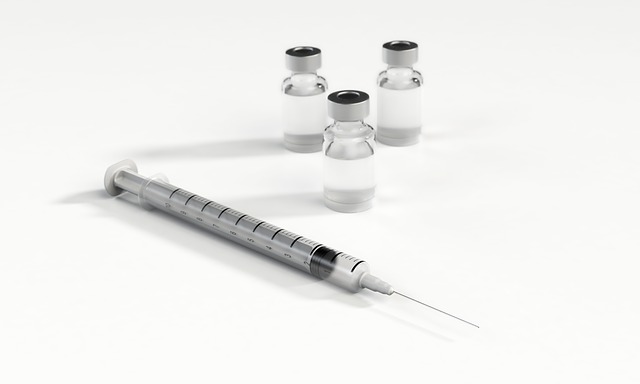
**Important- The information in this blog post is for informational purposes only and shouldn’t be deemed as medical or veterinary advice. I highly suggest you seek the advice of a veterinary professional to discuss the ongoing medical needs of your chinchilla.**
Before you adopt a pet, it is important to understand their health needs.
Many common pets, like cats and dogs, need regular vaccinations. But what about chinchillas?
Chinchillas do not need vaccinations or shots. But, they still need regular vet visits. Chinchillas can face a variety of health issues. So, it is important to schedule annual vet visits for your pet chinchilla.
In this post, we are going to take a deeper look into the health of pet chinchillas. By the end of the post, we hope you have a better understanding of chinchilla health care needs.
Do Chinchillas Need Vaccinations?
As discussed previously, chinchillas do not need vaccinations or shots. Unlike other domesticated animals, these creatures do not need vaccinations to stay healthy.
But, although chinchilla’s don’t need vaccinations, they still need regular vet visits. It is very important to take your pet chinchilla to the vet every year. These checkups will make sure that your chinchilla is staying happy and healthy.
The Initial Vet Visit
When you adopt a chinchilla, you should be given a health certificate. This certificate ensures that you are adopting a healthy chinchilla.
But, you still need to take your chinchilla to the vet within 48-hours of adoption. At this visit, the vet will make sure that the chinchilla is actually healthy. Additionally, the vet will:
- Tell you the chinchilla’s weight
- Confirm the chinchilla’s sex
- Conduct a thorough physical exam
- Check for signs of malnutrition or dehydration
- Conduct a blood test (if necessary)
- Conduct a fecal test to look for parasites
This initial vet visit is very important for your chinchilla’s long-term health. This is also a chance to establish a relationship with the vet.
Routine Vet Visits
After your chinchilla’s initial vet visit, you should know more about their health condition. Hopefully, they are healthy and happy. If everything seems normal, you won’t need to take your chinchilla to the vet for another year.
But, it is very important to schedule regular, annual check-ups. Even though the chinchilla won’t need vaccines, annual vet visits are still important. At these appointments, the vet can conduct physical exams to confirm that your chinchilla is still in good health.
If your vet finds any abnormalities, your chinchilla will have a better chance of survival if they have been taken to the vet annually. Preventative care is important for your chinchilla’s long-term health.
Potential Chinchilla Health Issues
Although we all hope our pet chinchillas live long, healthy lives, there are a few health issues they can face. But, regular vet visits can help prevent these issues from developing into life-threatening problems.
It is important for chinchilla owners to be aware of these potential chinchilla health issues. If you believe your chinchilla is experiencing any of these issues, you should schedule a vet visit as soon as possible (instead of waiting until your next regular appointment).
- Dental Issues- Chinchillas are rodents. And like many rodents, their front teeth continue to grow throughout their lives. Typically, chinchillas chew to wear down their front teeth and keep them at a manageable size. If chinchillas don’t have access to twigs or other chewable items, their teeth will grow to an uncomfortable size. This can lead to oral disease and other health problems.
- Heat Stroke- Wild chinchillas live in the Andes Mountains, which is a naturally cold climate. So, they developed a thick fur coat to deal with this environment. Pet chinchillas are prone to heat strokes because they often live in warmer environments. It is important to keep your chinchilla in a mild environment and be aware of signs of heat stroke. If a chinchilla looks weak or collapses, take it to the vet right away.
- Ringworm- Chinchillas are prone to carrying ringworm. Vets can easily diagnose ringworm in chinchillas. If a chinchilla has ringworm, the vet can prescribe a medication to help deal with the issue.
- GI Issues- Some chinchillas experience GI issues if they are fed an improper diet. Chinchillas cannot easily digest many vegetables. So, if they are fed these foods, they can develop serious GI issues. Take your chinchilla to the vet if you think they are experiencing GI problems.
Final Thoughts
Unlike other household pets, chinchillas do not need vaccinations or shots to stay healthy. But, they still need regular vet checkups.
It is important to schedule an annual checkup for your pet chinchilla. At these checkups, the vet can diagnose any potential health issues.
Also, you should be aware of the main health issues that chinchillas face. Make sure you are familiar with the dental, GI, heat, and ringworm problems these creatures can encounter. But, with regular vet visits, your chinchilla can enjoy a long and healthy life.
Do you have any interesting stories related to chinchillas and their health? Feel free to share these in the comments below!
